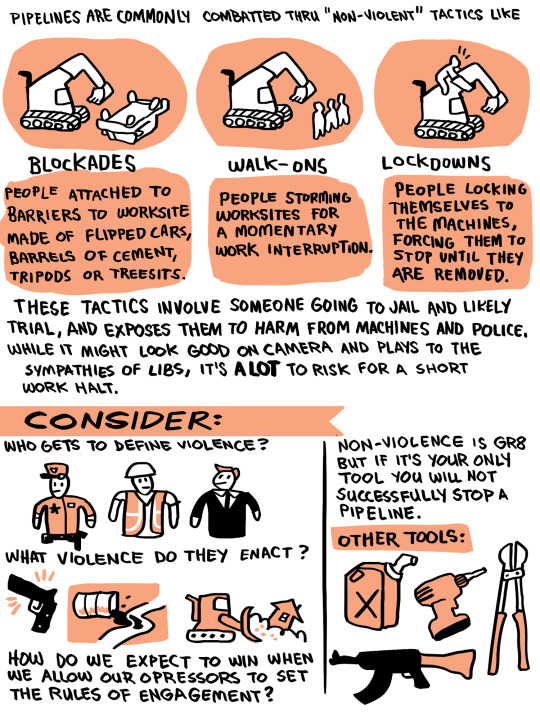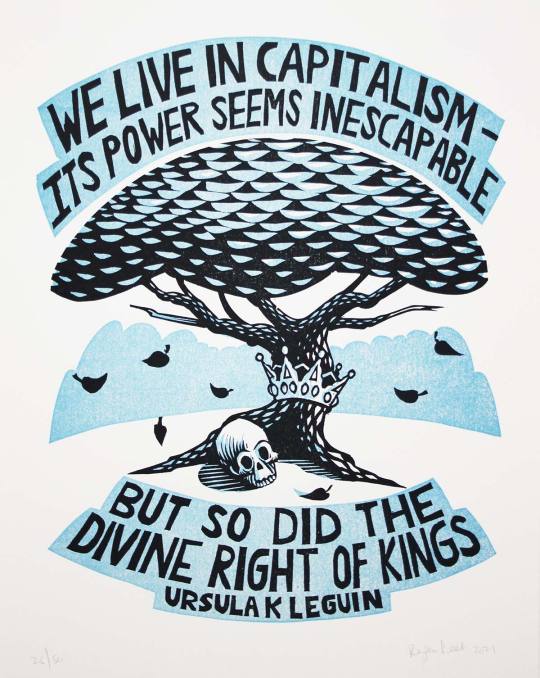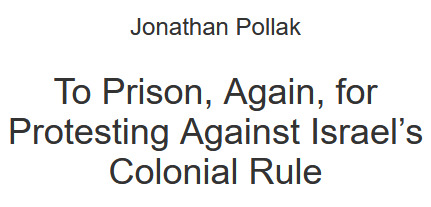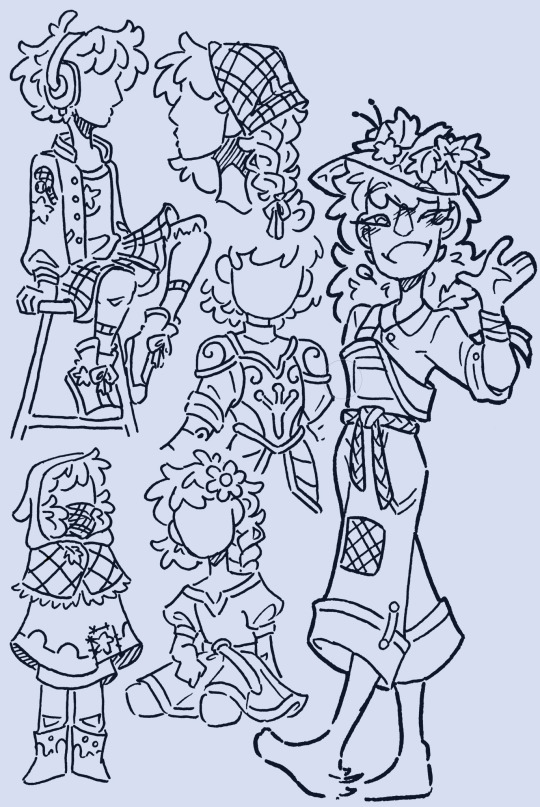#climate resistance
Text
A new drought-tolerant variety of durum wheat has been created as part of an international breeding programme to boost climate resilience in the food system by increasing crop diversity.
Durum wheat is used to make pasta, pizza crusts, and flatbreads such as pitta and chapatis, as well as for couscous, bulgur and pastry for desserts such as baklava.
The new wheat Jabal, which means “mountain” in Arabic, was developed by farmers and crop scientists by crossing a commercial durum wheat with a wild relative from an arid region of Syria, to create a new durum variety which can withstand drought.
It’s part of the Crop Trust’s wild relatives project, which is using genetically diverse crop varieties to help develop more resilient and adaptive varieties of wheat, barley, rice, and potato that can withstand erratic and extreme weather conditions caused by the climate breakdown.
While it is not yet commercially available, farmers in Morocco will be the first to start growing the new version of durum wheat, which is widely eaten in north Africa and the Middle East, in about three years. Morocco is suffering its worst drought in four decades, and grain production is down by about 70% due to the extremely dry conditions.
Breeders and farmers in drought-affected areas planted numerous new durum wheat varieties between 2017 and 2021. Jabal stood out as it was able to flourish and produce grains while all commercial varieties of durum failed. Its distinctive black spikes also produced high yields of plump grains that made tasty bread, scientists said.
11 notes
·
View notes
Photo

maybe consider violence.
#tools#direct action#blockade#land defenders#nonviolence#diversity of tactics#resistance#water protectors#strategy#earthday#climate change#pipeline#industry
3K notes
·
View notes
Text

Artist credit:
#ursula k. le guin#hopepunk#hope punk#solar punk#solarpunk#futurism#climate and environment#climate action#climate hope#climate chaos#clean energy#capitalist society#capitalism#capitalist dystopia#resistance#faith in the future#economic justice#workers rights#imagine better
2K notes
·
View notes
Text
This is what the Republicans are trying to do for the whole country. State news like in North Korea, China, Iran, Russia, Cuba, etc…
#chevron#oligarch assholes#corporate propaganda#oligarch propaganda#republican propaganda#big oil#climate and environment#pollution#corruption#republican assholes#traitor trump#right-wing news#crooked donald#traitor#republican values#maga morons#resist#never trump
404 notes
·
View notes
Text
heavy suffocating clouds of gunpowder and possibly white phosphorous in gaza

#thinkng of that person who said what does climate justice have to do with israeli airstrikes in gaza .....#this is so dystopian oh my god#free palestine#palestine#gaza#israel#death to israel#long live palestine#glory to the martyrs#from the river to the sea palestine will be free#long live the resistance
718 notes
·
View notes
Text


I am currently detained in an Israeli jail, the result of refusing to attend or cooperate with criminal charges laid against me and two others for joining Palestinian protests in the West Bank against Israel’s colonial rule. Because I am an Israeli citizen, the proceedings in the case are held in an Israeli court in Jerusalem and not at the military court, where Palestinians are tried.
It has been almost nine years since the last time I was incarcerated for more than a day or two. Much has changed since. Politically, reality does not even resemble that of a decade ago, and none of the changes were for the better.
Politically, the world seems to have lost much of its interest in the Palestinian struggle for liberation, placing Israel at one of the historical peaks of its political strength. I am in no position to discuss the profound changes within Israeli society and how even farther to the right it has drifted. Israeli liberals are much better suited for such a task, because they hold their country dear and feel a sense of belonging that I cannot feel and do not want to feel.
Personally, I am older, more tired and, mostly, not as healthy as I was. Of course, the price I have paid for my part in the struggle is a fraction of that paid by Palestinian comrades, but I cannot deny its subjective weight on me: from physical injuries, some irreversible, through sporadic despair, anxiety and sense of helplessness, to the encumbering sensation of loss and the presence of death – and the grip all these have on my day-to-day life. And yet, the more things change, the more they stay the same. Right now, just as it was back then, sitting in prison is better than any other alternative available to me.
The legal fallacies that riddle the case against us are of little significance. While it is fair to assume that had I agreed to cooperate, the trial would have ended up with an acquittal, my refusal to recognize the court’s legitimacy is based on two main grounds.
The first is that my Palestinian comrades do not enjoy the luxury of being tried in the relatively comfortable conditions of the Israeli courts. Rather, they are tried as subjects in the parody of a legal system that are Israel’s military courts. Unlike me, Palestinians do not have the option of refusing to cooperate with their captors, since the vast majority of them are tried while remanded into custody for the duration of their proceedings.
Additionally, the punishment Palestinians are faced with is significantly harsher than that specified in Israeli law. Thus, in this regard as well, despite refusing to recognize the court’s legitimacy, the price I am likely to pay is significantly lower than that paid by my comrades.
The second, more fundamental ground to refuse to cooperate is that all Israeli courts, military or otherwise, lack any legitimacy to preside over matters of resisting Israeli colonial rule, which employs a hybrid regime, ranging between a distorted and racially discriminatory democracy in its sovereign territory and a flat-out military dictatorship in the occupied territories.
Faced with the tremendous shift to the right in Israeli politics, the shrinking remnants of the Zionist left – once the country’s dominant elite group – are consumed by lamenting the decline of Israeli democracy. But what democracy is it they wish to defend? The one that has dispossessed its Palestinian citizens of their lands and their rights? The one that, at best, views these Palestinian citizens as second-class? Perhaps it is the democracy that governs the Gaza Strip through vicious siege while it reigns as a military dictatorship in the West Bank?
Despite the obvious nature of the Israeli regime, Israeli liberals are not willing to contest the fundamental premise of internal Israeli discourse and acknowledge that the State of Israel simply is not a democracy. Never was.
To join the fight to topple Israeli apartheid, the few Jewish citizens of Israel willing to do so will first have to recognize that they are overprivileged and be willing to pay the price of relinquishing that status. An open rebellion against the regime has been taking place for decades, carried out by the Palestinian resistance movement. The price paid by those involved in it is immense. Jewish citizens of Israel must cross over and walk in their footsteps.
#anti-colonialism#anti-prison#Israel#Jewish anarchism#anarchism#climate crisis#climate change#resistance#autonomy#revolution#ecology#community building#practical anarchism#anarchist society#practical#Jonathan Pollak#practical anarchy#anarchy#daily posts#communism#anti capitalist#anti capitalism#late stage capitalism#organization#grassroots#grass roots#anarchists#libraries#leftism#social issues
70 notes
·
View notes
Text
You ever be totally immersed in a story and then you come across a line about a subject and you realize you know more about this subject than the author and what the author wrote down was completely wrong and it's not even that the author didn't do research so much as the author didn't even think this was something that even needed to be researched? And it drives you absolute cuckoo bananas?
#pretty sure vellum is pretty flame resistant since it's leather and not paper#why are you doing this to me Phong Nguyen#also I'm less clear on this point I'll have to look up the history of manuscripts but did first century Vietnam even have vellum books?#like Asia had access to tree paper well before Europe did i think parchment and vellum were European in nature#after the decline of the papyrus trade following the collapse of the Roman empire#and needing something that was more durable in wetter climates than the Mediterranean anyway#i know europe got tree paper from China (possibly via Türkiye? idr) but i don't know if europe exported vellum and parchment#given the advent of tree fiber paper in Asia it doesn't seem like there'd be much need for vellum manuscripts in 1 C.E Vietnam#*first century C.E not 1 C.E#wait a minute#did EUROPE even have vellum by First Century C.E??#i.. i have to go look this up now wtf...
56 notes
·
View notes
Text

Our Climate Justice 🌍🌱✊ action guide uncovers the consequences climate change has on humanitarian issues beyond natural disasters. More importantly, our blog post is enriched with practical resources to help you learn how you can play a pivotal role in the climate justice movement! Be sure to check it out now 👇!
#HRC#human rights connected#hrcblog#action guide#climate#climate change#climate justice#climate crisis#climate emergency#climate breakdown#climate action#save the planet#global warming#weather#environment#nature#human rights defenders#activism#civil resistance#indigenous#indigenous peoples
115 notes
·
View notes
Text
I'm just.
Astounded. By all of that.
Also, creator Showmeyourmask is an awesome activist.
#climate crisis#living historical events#resistance#capitalism#anti capitalism#activism#protests#nature#planet earth#using your power for good#indigenous#intersectionality#big oil#all things are connected#showmeyourmask
21 notes
·
View notes
Text

It's that time of year again where it gets a little warmer and I remember that Amphibia is a show I very much enjoy thinking about. Have some Anne outfits, as a treat <3
If you would like to see what aspect of headcanon/ au worldbuilding had consumed my consciousness like a pestering maggot, feel free to continue below.
Hello! Welcome to I focus on researching one very specific detail until I burn out!
My entire day has been consumed by figuring out how Amphibia's farming works. Like... amphibians are carnivores why do they have farms?
Well, I'll tell you why! The Plantars grow animal feed for predominantly crickets but also others such as silkworms, spiders, snails, etc. They grow produce like cabbage, mushrooms, parsnips, potatoes, dandelions, and turnips as well as heartfruit, a fruit not found on Earth.
In the past, the original amphibian hunter/gatherer societies found that mealworms were attracted to fallen heartfruit, among others. They began to use this knowledge to make traps and eventually began both containing the worms as well as growing the fruit.
Despite mealworms historical prominence in the farming and feeding of Amphibia, crickets are more popular nowadays due to their higher levels of protein. They also began growing a larger variety of produce to further increase efficiency.
Heartfruit is a kind of tree grown fruit with the color of a raspberry, size of a kumquat, and shape of a peach (hence the name). The Plantar's orchard is the only producer of this fruit as its traditionally significant but not necessary for frog kind. They are Anne's personal favorite of the Plantar's produce, being chalk full of nutrients and somehow feels nostalgic to her.
Speaking of Anne, she survives mostly on the Plantar's produce along with cricket meat (knowing that she can at least eat crickets).
After discovering that the amphibians hibernate, she begins to plant pole beans, blueberries, elderberries, and other produce and herbs in her greenhouse to cultivate while she forages and stockpiles for winter. She preps and stores wild rice, pecans, and sunflower seeds (discovered through trial and error). She keeps spare root veggies and other product in the basement. The Plantars help her do this, once they understand the situation, drying heartfruit and salting and smoking fish as well as making jerky out of bugs that they know she can have.
Anne's gonna learn to survive, even if the first winter is especially hard.
#Not my usual content but I love her and this au so much <3#amphibia#4 Stars Au#I've done the research for what Anne would grow and eat no less than four times and it comes out vastly different each time.#Researching what grows in swamps + what frogs eat + what bugs humans can have + what the plantars grow + ...#farmer anne#trans anne boonchy my beloved#I could not find a suitable place for this but a different farm grows spirulina (a freshwater algae) for tadpoles. Anne will also eat this.#They are sold in jars (like baby food)#This whole au is about emphasizing the differences between humans and amphibians#Anne is warmblooded? Must prepare for winter#Can't live on an amphibian's diet? Eat animal feed and forage#Sasha is more resistant to the harsh climate of the mountains as well as to dangerous substances like citris and salt#She eats orange slices as a power play is all I'm saying#Marcy ends up being the first to truly research Amphibia's oceans because she can acturally survive touching the sea#Desi (4th star) is called the 'Sunchild' for a reason#Can't breathe underwater? Learn magic#anne boonchuy#plantar family
25 notes
·
View notes
Text
“the locked tomb is about love vs. freedom” “the locked tomb is about death” “the locked tomb is about the dangers of codependent relationships” “the locked tomb is about climate change” “the locked tomb is about identity with regards to the soul” yeah sure but above all else. the locked tomb is about bodily autonomy
#idk just thinking about alecto and the parallel tamsyn muir draws between fighting climate change#and the body autonomy fight of the feminist movement#the patriarchal control and harm john exerts on the earth in a paternal patronizing attempt to save it#the byproduct of john eating the earth being an eve-like creation of alecto in the model of the pinnacle of white femininity#the way that necromancers keep their body when becoming lyctors except for their cavaliers’ eyes and consumed soul#the difference between ianthe fucking with harrow’s hair glands vs. harrow growing ianthe a new arm#the resistance’s plan to take down john being contingent on nonconsensual sex. wake despising carrying gideon for nine months.#the creation of paul being implied to create a new body#nona being able to read all body language and understanding people best through how they physically are#john making kiriona’s body ‘perfect’ by making it impenetrable (untouchable) and heartless#harrow puppeting her dead parents’ bodies for years. john raising ulysses and titania as dead puppets as his first act of necromancy#nona being able to speak with varun and empathize with his grief and anger#idk. bodies and planets and personhood and the violation of all#the locked tomb#blah.txt
56 notes
·
View notes
Link

“Until as recently as 1970, India was a land with more than 100,000 distinct varieties of rice. Across a diversity of landscapes, soils, and climates, native rice varieties, also called “landraces,” were cultivated by local farmers. And these varieties sprouted rice diversity in hue, aroma, texture, and taste.
But what sets some landraces in a class of their own—monumentally ahead of commercial rice varieties—is their nutrition profiles. This has been proved by the research of Debal Deb, a farmer and agrarian scientist whose studies have been published in numerous peer-reviewed journals and books.
In the mid-1960s, with backing from the U.S. government, India’s agricultural policy introduced fertilizers, pesticides, irrigation facilities, and high-yielding varieties of crops under the moniker of a “Green Revolution” to combat hunger. Instead, it began an epidemic of monocultures and ecological destruction.
In the early 1990s, after realizing that more than 90% of India’s native rice varieties had been replaced by a handful of high-yielding varieties through the Green Revolution, Deb began conserving indigenous varieties of rice. Today, on a modest 1.7-acre farm in Odisha, India, Deb cultivates and shares 1,485 of the 6,000 unique landraces estimated to remain in India.
Deb and collaborators have quantified the vitamin, protein, and mineral content in more than 500 of India’s landraces for the first time, in the lab he founded in 2014, Basudha Laboratory for Conservation. In one extraordinary discovery, the team documented 12 native varieties of rice that contain the fatty acids required for brain development in infants.
“These varieties provide the essential fatty acids and omega-3 fatty acids that are found in mother’s milk but lacking in any formula foods,” Deb says. “So instead of feeding formula foods to undernourished infants, these rice varieties can offer a far more nutritious option...”
Deb’s conservation efforts are not to preserve a record of the past, but to help India revive resilient food systems and crop varieties. His vision is to enable present and future agriculturists to better adapt to climate change...
Deb conserves scores of climate-resilient varieties of rice originally sourced from Indigenous farmers, including 16 drought-tolerant varieties, 20 flood-tolerant varieties, 18 salt-tolerant varieties, and three submergence-tolerant varieties. He shares his varieties freely with hundreds of small farmers for further cultivation, especially those farming in regions prone to these kinds of climate-related calamities. In 2022 alone, Deb has shared his saved seed varieties with more than 1,300 small farmers through direct and indirect seed distribution arrangements in several states of India.
One of these farmers is Shamika Mone. Mone received 24 traditional rice varieties from Deb on behalf of Kerala Organic Farmers Association, along with training on maintaining the purity of the seeds. Now these farmers have expanded their collection, working with other organic farming collectives in the state of Kerala to grow around 250 landraces at two farm sites. While they cultivate most of their varieties for small-scale use and conservation, they also cultivate a few traditional rice varieties for wider production, which yield an average of 1.2 tons per acre compared with the 1 ton per acre of hybrid varieties.
“But that’s only in terms of yield,” Mone says. “We mostly grow these for their nutritional benefits, like higher iron and zinc content, antioxidants, and other trace elements. Some varieties are good for lactating mothers, while some are good for diabetic patients. There are many health benefits.”
These native varieties have proven beneficial in the face of climate change too.
With poor rains in 2016, for example, the traditional folk rice variety Kuruva that Mone had planted turned out to be drought-tolerant and pest-resistant. And in 2018, due to the heavy rains and floods, she lost all crops but one: a folk rice variety called Raktashali that survived underwater for two days.
“They have proven to be lifesavers for us,” Mone says.” -via Yes! Magazine, 12/14/22
#india#rice#indigenous knowledge#farming#agriculture#climate change#climate resilience#sustainable agriculture#traditional knowledge#drought resistance#nutrition#good news#hope
205 notes
·
View notes
Text
How to acquire my book, *Culture War, Class War 2022: Truth & Generations*, free, to help a Democratic win in 2024
We’re prepping for our lives’ biggest battle: the 2024 election. Everything—our freedom, our lives, & all life on Earth—is at stake. …
How to acquire my book, *Culture War, Class War 2022: Truth & Generations*, free, to help a Democratic win in 2024.
#history#books and libraries#government#culture#inspiration#RidingWithBiden2024#resist#resistance#StrongerTogether#BlueCrew#VoteBlue#BLM#persist#CultureWar#ClassWar#SlavaUkraini#NAFO#WomenLifeFreedom#Iran#WORLDWIDERESISTANCE#WWR#WWFBR#WWRESISTANCE#satyagraha#psychology#psychohistory#Covid19#climate#extinction#ecocide
7 notes
·
View notes
Text
alright it's time to find smth out
please note that with labels like flexitarian especially it's not about 'oh i never eat these things'; it's a sliding label with things like vegan and vegetarian and pescatarian where you can identify however you feel comfortable. some people just eat meat etc on special occasions or when they go out or when they don't have time/spoons to cook something nutritious, and that's perfectly valid!! whatever you're able to do has an impact that's felt and there's no pressure to do it to whatever standard we have of 'perfect' in our heads <3
#bringing gender labels to vegetarianism#kind of. we need a lot more validation in these spaces#again want to stress so much. literally no judgement based on what you choose. the important part is if we can we do smth#and if you can't then i believe you and you don't need to worry bc those of us who can are doing what we can#vegan#vegetarian#pescatarian#flexitarian#climate action#climate justice#food security#antibiotic resistance#bird flu#biosecurity#public health#human rights#feminism#biodiversity collapse
17 notes
·
View notes
Text

July 29, 2023
Have a good weekend and a blessed Lammas/Lughnasadh if you celebrate it.
I have created a Sigil for Climate and Environmental Protection and it is free to use (not commercially). Here you can read what went into it and download printable files:
https://cavorta.substack.com/p/sigil-for-climate-and-environmental
#sigil witchery#sigil#sigils#climate protection#environmental protection#biodiversity#magick#magickalactivism#resistance magick#sigil magick#mother earth#mother earth love
50 notes
·
View notes
Text
the settler colonial zionist state is not sustainable in any way



#and then they go and make boots made from vegan leather for the idf or smth .......... like what AND they pour cement into wells??#trying all possible avenues to legitimize breaking international law lmao#free palestine#palestine#gaza#long live palestine#glory to the martyrs#from the river to the sea palestine will be free#long live the resistance#death to israel#climate change#greta thunberg
162 notes
·
View notes